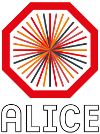Understanding the nature of f0(980) with ALICE at the LHC
The f0(980) resonance had been observed years ago in ππ scattering experiments and is expected to be one of the scalar mesons. Since its first observation in the 1970s, the nature of light scalar mesons is far from the understanding, and no consensus on its internal structure has been reached, raising different suggestions regarding the structure of the f0(980), such as tetraquark, mesonic molecule, and conventional diquark structure. The extreme environment, such as high temperature and density, de- confines quarks and gluons, freeing them and forming the Quark-Gluon Plasma (QGP), which is expected to be created immediately after the Big Bang. Such an early stage of our universe can be reproduced in relativis- tic heavy ion collisions, providing chances to study the properties of QGP. Extensive studies have been conducted on the geometry, evolution, and particle production of QGP, and its modification, with many scientific ac- ceptances for the existence of QGP. Surprisingly, phenomena exhibiting the existence of QGP are also observed in high-multiplicity proton–proton and proton–ion collisions, leading to further questioning QGP formation. In this respect, the f0(980) resonance is measured with the ALICE detector via the f0(980) → π+π− decay channel in relativistic nucleus– nucleus collisions. The present thesis describes the entire methodology to measure the invariant yield in different multiplicity classes at midra- pidity. The particle yield ratios of the f0(980) resonance are measured to discuss the properties of the late hadronic phase throughout differ- ent collision systems and to explore the internal structure of the f0(980). Furthermore, the measurement of the nuclear modification factor and the elliptic flow and model predictions with different assumptions for the f0(980) strengthen the physics messages in the present thesis.
